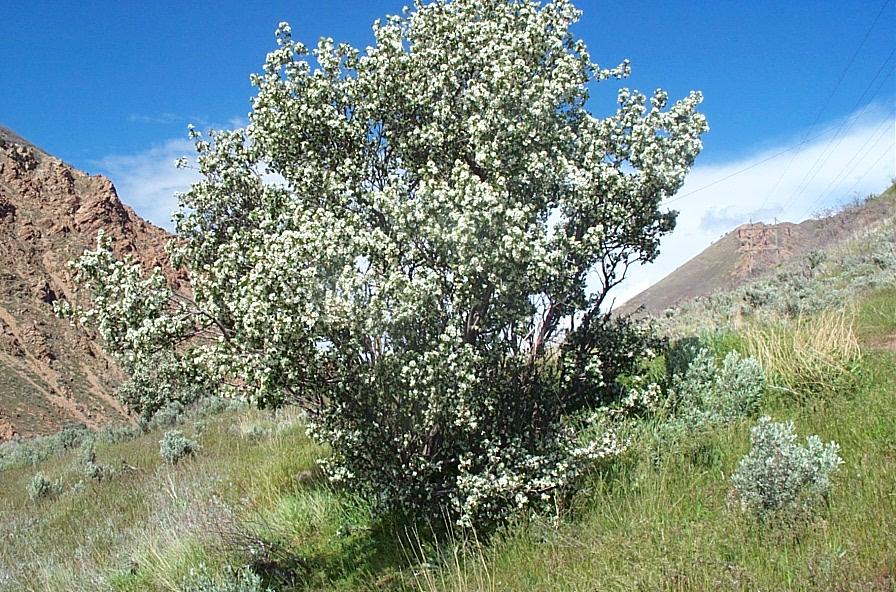Amelanchier
|
Family: Rosaceae |
Hypanthium obconic, campanulate, or saucer-shaped; sep 5, erect to reflexed, persistent; pet 5, white; stamens usually 20, shorter than the pet; ovary inferior, 5-locular in our spp., the 5 styles distinct or partly connate; ovules 2 per locule, soon separated by a partition growing in from the back of each carpel, the 10- seeded pome therefore apparently 10-locular; unarmed shrubs or trees with simple, alternate, serrate lvs and medium-sized fls in rather short, often leafy-bracteate racemes (rarely reduced to a single fl) terminating the branches of the season and opening with or before the lvs; x=17. 20, N. Temp.
Genus beset with hybridization, polyploidy, and apomixis (as shown by the frequent apparently fertile triploids). Plants called A. intermedia Spach probably reflect hybridization between A. canadensis and A. arborea or A. laevis. Plants called A. interior Nielsen, found mainly in Minn., Wis., e. Io., and n. Mich., may be a hybrid swarm or a set of segregating polyploids derived from A. laevis and A. sanguinea. Plants called A. wiegandii Nielsen may reflect hybridization between A. sanguinea and A. arborea or A. laevis. Plants called A. nantucketensis E. P. Bicknell may be hybrids between A. canadensis and A. spicata. Other hybrids also occur and may be to some degree self-perpetuating. Gleason, Henry A. & Cronquist, Arthur J. 1991. Manual of vascular plants of northeastern United States and adjacent Canada. lxxv + 910 pp. ©The New York Botanical Garden. All rights reserved. Used by permission. |

